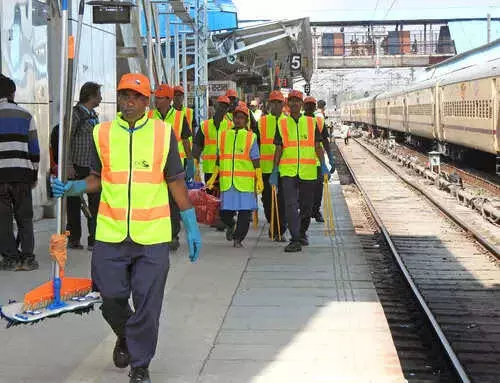Cabinet Approves Key Measures for Employees, Railways, and Farmers

New Delhi:The Union Cabinet, chaired by Prime Minister Shri Narendra Modi, on October 16 approved a series of significant measures aimed at benefiting Central Government employees, pensioners, infrastructure development, and the agricultural sector.
In a major relief to employees and pensioners, the Cabinet approved an additional instalment of Dearness Allowance (DA) and Dearness Relief (DR), effective from July 1, 2024. This increase represents a 3% rise over the existing rate of 50% of Basic Pay/Pension, aimed at offsetting the impact of inflation. The decision is in line with the recommendations of the 7th Central Pay Commission and will benefit approximately 49.18 lakh Central Government employees and 64.89 lakh pensioners. The total financial implication of this move is estimated at Rs. 9,448.35 crore annually.
The Cabinet also gave the green light to a significant infrastructure project under the Ministry of Railways, with an estimated cost of Rs. 2,642 crore. The multi-tracking project, which spans Varanasi and Chandauli districts in Uttar Pradesh, aims to ease congestion on one of the busiest routes in Indian Railways, the Varanasi-Pt. Deen Dayal Upadhyaya Junction stretch. This route, crucial for both passenger and freight traffic, has been facing heavy congestion due to the increasing demand for transportation of goods like coal, cement, and food grains. The project includes the construction of a new rail-cum-road bridge over the Ganga River and the addition of 3rd and 4th railway lines to improve capacity and efficiency. The enhanced infrastructure is expected to support socio-economic growth in the region, generating employment and self-employment opportunities.
In a move to support farmers, the Cabinet Committee on Economic Affairs (CCEA), also chaired by Prime Minister Modi, approved an increase in the Minimum Support Prices (MSP) for all mandated Rabi crops for the 2025-26 marketing season. The highest MSP increase is for rapeseed and mustard, at Rs. 300 per quintal, followed by lentil (masur) at Rs. 275 per quintal. Other crops, including gram, wheat, safflower, and barley, also saw increases ranging from Rs. 130 to Rs. 210 per quintal. This initiative aims to provide fair and remunerative prices to farmers, further securing their livelihoods and promoting agricultural growth.
These decisions highlight the government’s commitment to addressing the needs of different sectors, enhancing employee benefits, bolstering infrastructure, and supporting the nation’s
farmers.
